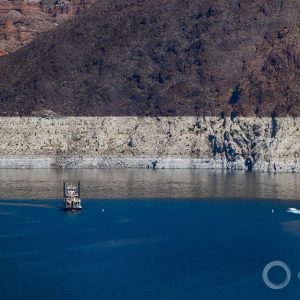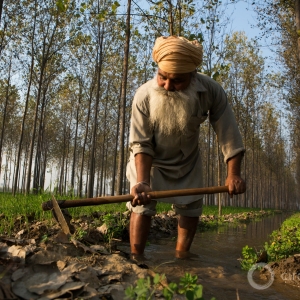The Stream, January 5, 2021: Officials Look For Solutions To Water Scarcity Along Colorado River
GLOBAL DAILY WATER NEWS
- More frequent and intense dry years in states along the Colorado River forces officials to look for long-term solutions.
- Deadly tropical storms in Mozambique offer lessons into how wealthier nations can support economically depressed countries during climate disasters.
- Over six months after flooding began, citizens throughout South Sudan are still isolated or displaced.
- Sudan, Egypt and Ethiopia resume talks over the Grand Ethiopian Renaissance Dam.
New research out of the United States answers a question about desalination scientists have struggled to solve for years.
“Fresh water management is becoming a crucial challenge throughout the world. Shortages, droughts—with increasing severe weather patterns, it is expected this problem will become even more significant. It’s critically important to have clean water availability, especially in low-resource areas.” – Enrique Gomez, a professor of chemical engineering at Penn State. Research out of The University of Texas at Austin and Penn State found that uniform density at the nanoscale is the key to increasing how much clean water desalination membranes can create, UT News reports. The research provides an answer to a complex question about the desalination process that scientists have struggled to solve for decades and could bring society one step closer to reducing costs of clean water production.
In context: Desalination Has a Waste Problem
IN RECENT WATER NEWS
Four U.S. Water Stories to Watch in 2021
Far from being in the rearview, the upheaval of the last year will set the stage for the next 12 months and beyond.
The pandemic’s economic dislocation continues to reverberate among those who lost work. Severe weather boosted by a warming climate is leaving its mark in the watersheds of the Southwest. And President-elect Biden will take office looking to undo much of his predecessor’s legacy of environmental deregulation while also writing his own narrative on issues of climate, infrastructure, and social justice.
Unanticipated storylines will undoubtedly arise — who, a year ago, expected such tumult from a virus? — but some trends are known in advance. The contours of these four stories have already taken shape.
In Case You Missed It:
HotSpots H2O: Minnesota Pipeline Opponents File Federal Lawsuit to Halt Construction – Two Minnesota Ojibwe communities and two environmental organizations filed a lawsuit against the Line 3 oil pipeline in order to halt construction in that state, alleging that the U.S. Army Corps of Engineers issued the project’s water quality permit without appropriate consideration of several environmental issues.
What’s Up With Water – January 4, 2020 – This week’s episode covers a settlement to compensate victims of the Flint water crisis in Michigan, the replacement of all lead service lines in Newark, New Jersey and the federal approval of a water rights settlement that will fund drinking water infrastructure on reservation lands in Utah.
Economically Struggling Nations Like Mozambique Hit Hardest When Climate Catastrophes Strike
Nearly two years after Cyclone Idai hit Mozambique, the country is still struggling to recover. Now, just weeks after another tropical storm hit the country’s capital city, The Guardian reports that the impact of deadly storms is less explained by its intensity and more by how underprepared the countries the storms strike are. Nearly 92,500 people in Beira are still homeless due to the cyclone, a city marked by poverty and destitution. Without aid from wealthier nations, countries like Mozambique will continue to face harsher impacts of climate change, according to experts and aid organizations.
TODAY’S TOP WATER STORIES, TOLD IN NUMBERS
1 MILLION PEOPLE
Around one million people in South Sudan have been displaced or isolated by flooding over the past six months. The Associated Press reports that families throughout the country are struggling to access food, water and medical care during a time when the nation is still recovering from an intense civil war. Almost all of the 60 villages throughout Fangak county have been affected by flooding. Locals say they can’t rely on their federal government for help, instead looking to international aid organizations for supplies and medical care.
In context: HotSpots H2O: Months of Flooding and Violence Force South Sudanese from Their Homes
20 YEARS
Rising temperatures have intensified dry years across the Colorado River Basin over the past 20 years, Arizona Republic reports. Colorado River Water Conservation District general manager Andy Mueller said extreme conditions over the past year, including drought and wildfire, will become more frequent in the future due to climate change. Farmers, city officials, environmentalists and managers of water districts along the Colorado River have begun discussing ways to adapt to the changing climate but there has been little agreement on the best way to move forward.
ON THE RADAR
Sudan, Egypt and Ethiopia agreed on Sunday to resume discussions over the operation of the Grand Ethiopian Renaissance Dam (GERD). Al Jazeera reports that major questions about how much water Ethiopia will release downstream remain. Egypt has long voiced concerns that the dam will severely cut their access to water along the Nile, which accounts for nearly 97 percent of its irrigation and drinking water. Sudan has warned that millions of lives could be at “great risk” without a binding agreement, while Ethiopia says the dam is essential to meeting the power needs of its population.
In context: HotSpots H2O: Tensions Rise in Horn of Africa as Ethiopia Fills Controversial Dam
Jane is a Communications Associate for Circle of Blue. She writes The Stream and has covered domestic and international water issues for Circle of Blue. She is a recent graduate of Grand Valley State University, where she studied Multimedia Journalism and Women, Gender and Sexuality Studies. During her time at Grand Valley, she was the host of the Community Service Learning Center podcast Be the Change. Currently based in Grand Rapids, Michigan, Jane enjoys listening to music, reading and spending time outdoors.






Leave a Reply
Want to join the discussion?Feel free to contribute!